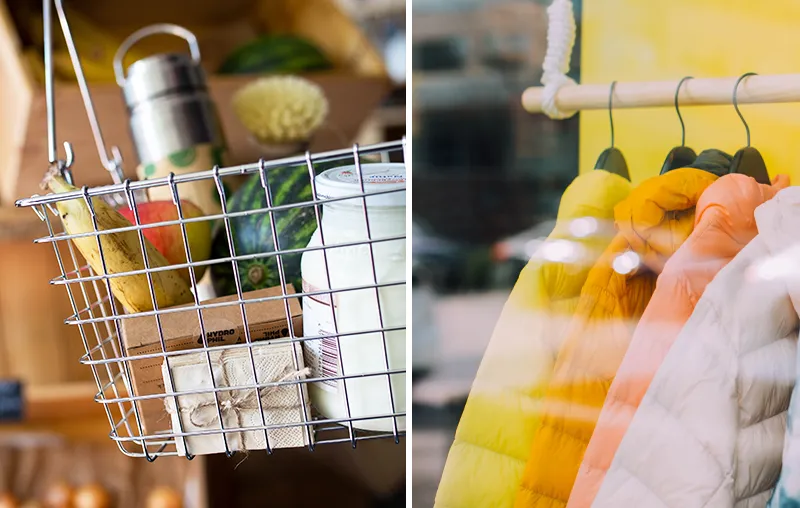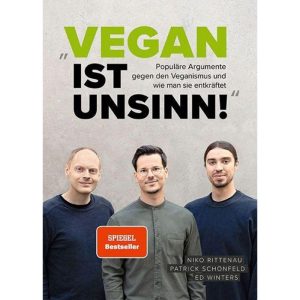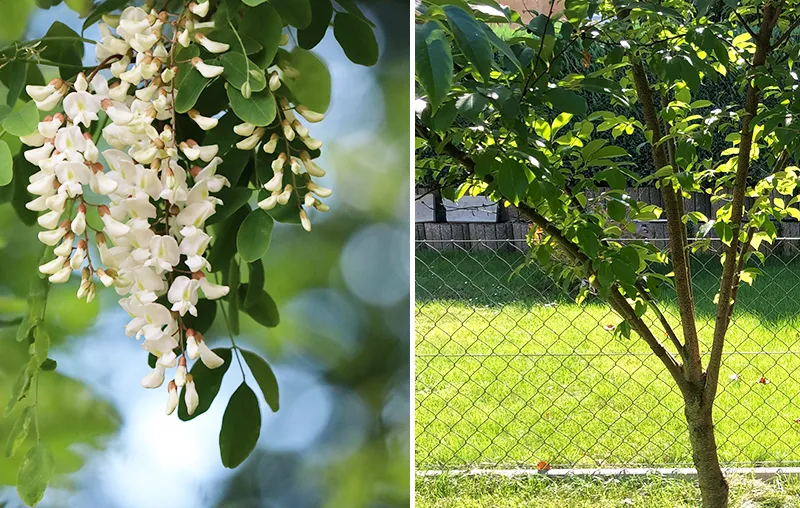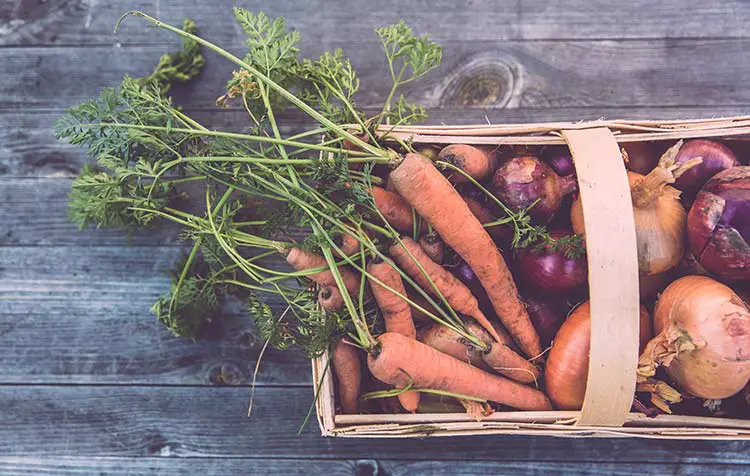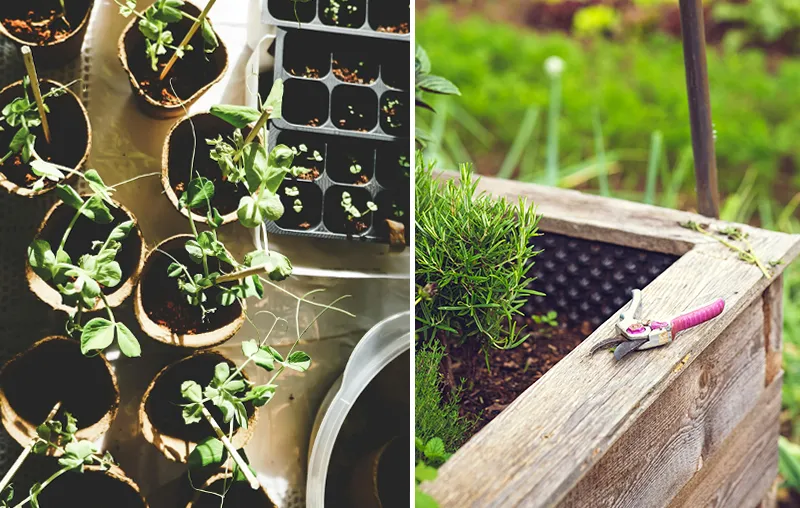Do you want to consume sustainably and make your consumption habits more socially responsible and environmentally friendly? Then you've come to the right place! Whether cotton, electricity, kerosene, petrol, plastic or meat - every day we buy, use and consume consumer goods and Natural resourcesto satisfy our individual needs.
Unfortunately, due to economic growth and the rapidly increasing world population, demand and consumption are now so high that our planet is reaching its limits. Planetary load limit is at risk. The future of our children and grandchildren is also at risk. Fortunately, we as consumers have numerous options at our disposal to take decisive action against overconsumption.
In this article, I would like to show you how you can not only consume less, but also consume more responsibly and what you need to pay attention to. Use the tips and ideas to optimize your consumer behavior so that everyone benefits. Let's go!
Advantages: Why consume sustainably and stop overconsumption?
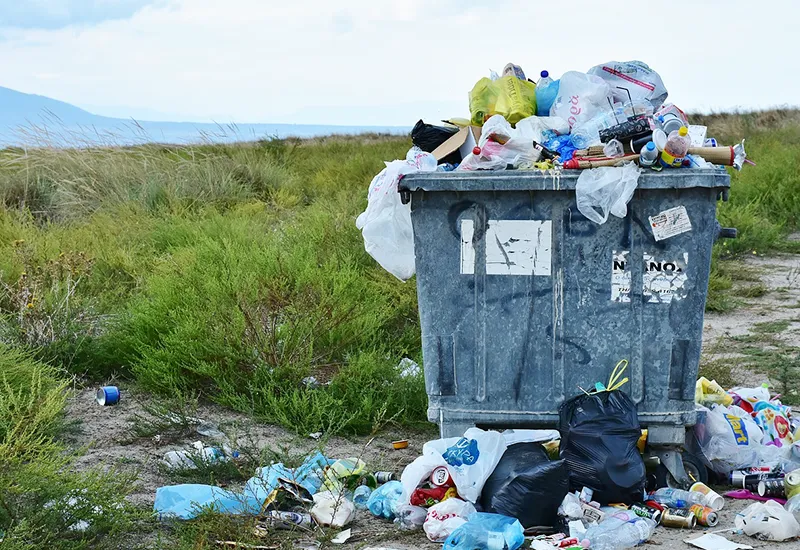
We consumers in Germany spend the majority of our income on private consumption.1 In 2022, these amounted to around 1.92 trillion euros - And the trend is rising. However, increasing consumption due to the growing Of course, prosperity also has its downsides.
The most important advantages and challenges at a glance
Before we move on to the specific tips, I would like to show you some of the most important advantages of conscious consumer behavior and briefly discuss the consequences and problems associated with overconsumption:
- Conserve resources: The natural resources of the planet are limited. Consuming sustainably also means treating it with respect so that future generations can also benefit from it. If everyone lived as lavishly as we Germans do, we would need three Earths. This is confirmed by the Earth Overshoot Day unfortunately every year anew.
- Reduce environmental impact: The production and consumption of new goods pollutes the air, water and soil with toxins and waste and also accelerates, among other things, the Deforestation of the rainforests. The change to conscious consumption, on the other hand, protects our planet and the animal and plant species that live on it with us.
- Stopping climate change: Every year, we Germans blow around 10.5 tons of greenhouse gas emissions per capita into the atmosphere for or through our consumption habits. This massive CO2 footprint is accelerating the global warming naturally enormous. Conscious, sustainable consumption, on the other hand, allows you to take decisive action against the biggest environmental problem of our time.
- Promoting social justice: Our consumer society is not fair! For example, workers have to toil under degrading working conditions and for the lowest wages for cheap clothing or smartphones. Conscious purchasing and giving preference to fair goods ensures more justice in this respect.
- Healthier living: Consumption makes you unhappy in the long term! Full closets and drawers can also be a burden. Fortunately, a little more minimalism and fewer possessions make for a more relaxing overview and considerably more time. In addition, sustainable products (food but also objects) are often healthier as they contain fewer chemicals and additives.
Sustainable consumption therefore offers a wide range of benefits - both for each of us individually and for society as a whole.
Stopping greenwashing and fraud at the expense of the environment
While more and more people are recognizing the importance of sustainable consumption and integrating concrete measures into their everyday lives, the Greenwashing a Increasing threat for these efforts.
It is often also referred to as Greenwashing scam and refers to a misleading Practice in which companies claim to be more environmentally friendly than they actually are.
Greenwashing usually takes the form of marketing and advertising that portrays products, services or entire companies as green or environmentally friendly, even though their practices contradict this. These misleading measures range from exaggerated claims to absolute False statements and lies. This undermines consumer confidence and prevents a real sustainable lifestyle or purchase decision.
This is another advantage of conscious consumption, no longer support such unethical practicesto get rid of them over time. Fortunately Consumer credibility increasingly importantso there is certainly hope.
12 tips: How can you consume and shop as sustainably as possible?
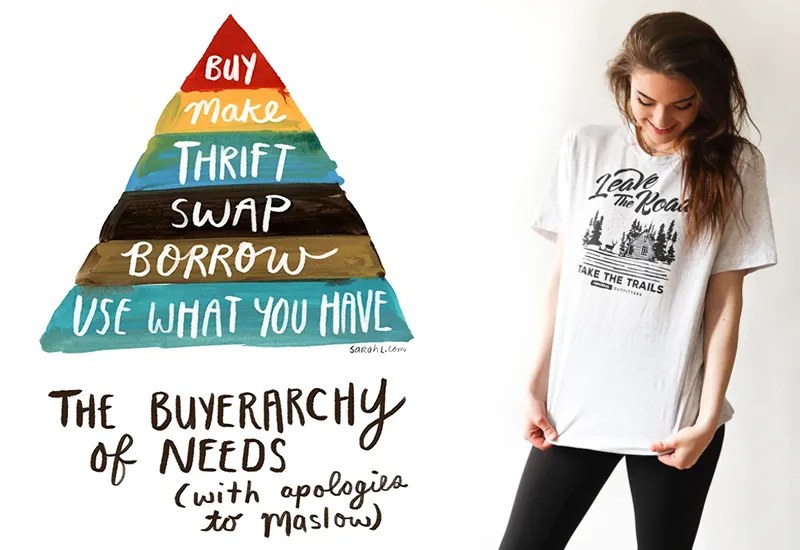
Now you know the many benefits of sustainable consumption. Motivated enough? Then only one last question remains: How can the potential be exploited in your own everyday life?
Based on the following practical tips I would now like to show you how you can make everyday areas such as food, leisure, transportation, housing, communication, health, education and clothing more sustainable.
I am sure that they will will help people to consume more consciously, responsibly and in a more environmentally friendly way - and your responsibility as a consumer.
1. follow the pyramid of sustainable consumption
The pyramid of sustainable consumption is a real Helpful model for avoiding environmentally harmful new purchases and appreciate the things you already own. If you focus on this, you will (almost) automatically set an example against overconsumption.
Even if you can already see them on the graphic above, I would like to show you the individual points again or give you a slightly expanded version to take with you:
- Use what you have.
- Repair it instead of throwing something away.
- Do it yourself.
- Borrow it and share it with others.
- Swap it for something useful.
- Buy it used.
- And only then: buy it new.
2. buy only really necessary things
In a world of abundance, it is of course important to always critically question your own consumption. So before making any (new) purchase, think about whether you really need the item in question - and whether, for example, the consumption of resources or the waste it generates are really necessary.
The honest answer to this question is often minimalist mindset "no". And if a "yes" does come to your lips, then you should, within the scope of your possibilities Quality before quantity so that you can really enjoy it for a long time.
3. give preference to regional and seasonal products
The Advantages of regional and seasonal consumption are obvious! Regional products have Short transportation routes and therefore also a better CO2 balance. You also support local farmers and small businesses around the corner, for example.
And if you prefer foods that are in season at the time of consumption, you can be sure that they were produced Less water and energy required was.
4. reduce food waste in a targeted manner
Around a third of the food consumed in Germany end up in the trash can!2 This waste is a sad consequence of overconsumption and a clear sign that we are currently still living in a Disposable society live.
However, food can also be made available through the Participation in initiatives like Food Sharing from the garbage can. You can also save your personal Reduce food waste - quite simply with the help of targeted measures. For example, by drawing up a weekly shopping plan and shopping strictly according to it. Or by making yourself more on your senses than on the best-before date.
5. do not consume animal products
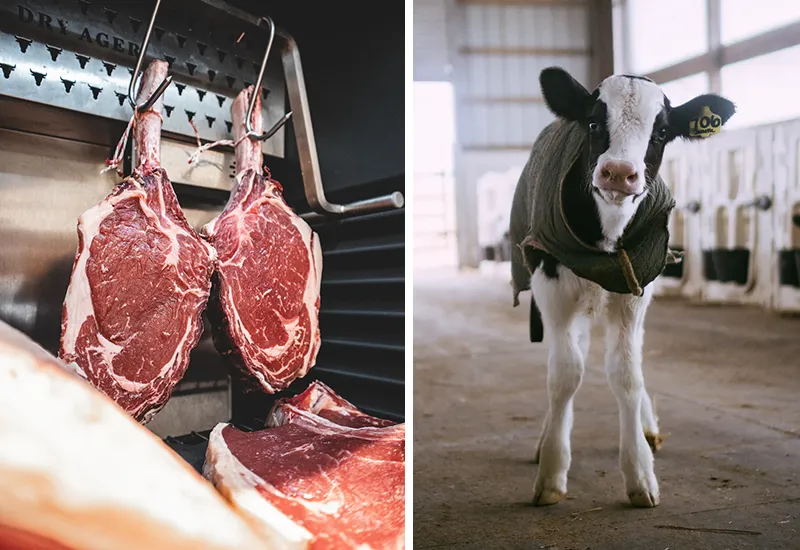
The Reducing the consumption of animal products is an important step towards more sustainable consumption. Above all, by completely avoiding products of animal origin, such as Meat, milk, cheese, butter or eggs you have a decisive impact. This is because the production of this food is extremely resource-intensive - for example, because animal feed is produced using large amounts of energy, water and energy. Land consumption must be generated.
By eat a vegan diet and consume the plants directlyyou are ultimately not only protecting cows, pigs, chickens and countless other animals, but also the environment and your own health. Fortunately, nowadays there are also Many plant-based alternativesthat make the changeover extremely easy for you.
6. choose long-lasting, sustainable fashion
Actions such as "Black Friday" are representative of the consumer craze in our society. Fashion in particular is consumed on such days, but of course also throughout the rest of the year. The so-called Fast Fashion brings however serious consequences for the environment and our society with it. (all information can be found in the linked article)
If you want to consume sustainably, you should therefore durable, fair, timeless and high-quality garments made from environmentally friendly and, where possible, recycled materials over cheap fashion. As a result, your demand also lays the foundation for a responsible fashion industry in the future.
Here are some more helpful, further articles for you:
- Slow fashion - what exactly is it?
- How to recognize sustainable fashion!
- Tips for truly durable clothing
7. switch to public transport and cycling
Whether it's to get to work or the supermarket, to meet up with friends or to pursue your hobbies: You have to get from A to B every day.
Fortunately, as a consumer, you also have the opportunity to massively reduce your personal energy consumption (for example by using less fuel) when it comes to mobility. Above all, however, switching to shared public or simply environmentally friendly means of transportation, such as the Subway, the long-distance train or your bikeyou significantly reduce your CO2 emissions.
And even if you dependent on the car you can change your consumer behavior by Measures for sustainable driving (e.g. higher tire pressure or anticipatory driving), the use of Car sharing and the formation of Carpools still have something to optimize for work.
8. give preference to energy-efficient electrical appliances
Technical appliances consume large amounts of energy, particularly during their period of use (e.g. a washing machine or refrigerator) and wear out over the years. The wear process is characterized by the planned obsolescence often even accelerated by the manufacturer.
If a particular device can no longer be repaired and needs to be replaced, you should definitely give preference to durable and efficient versions that consume less electricity (and water). When buying, make sure you pay attention to the EU energy label.
9. drink tap water instead of packaged mineral water
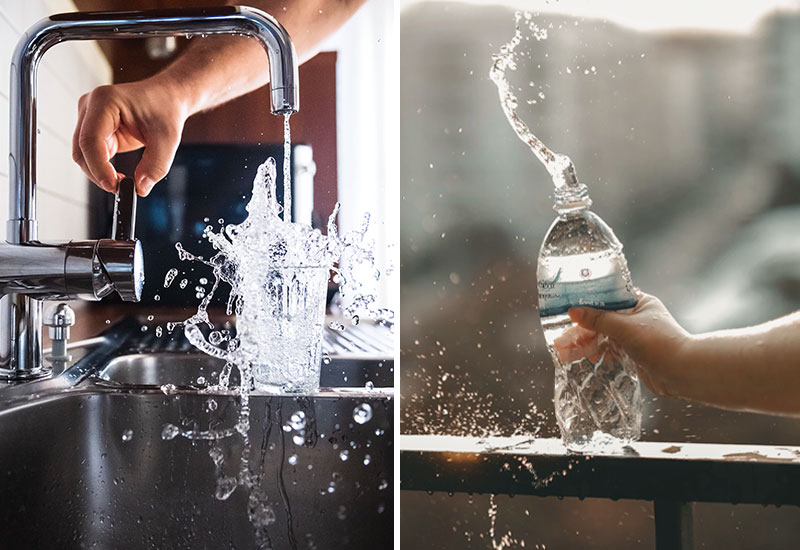
A really effective measure for sustainable consumption is to switch from mineral water in plastic bottles to water from the tap. This will not only reduce your Consumption of plastic bottles! You also save a lot of money in the long term and the Energy for their recycling and transportation one.
At the same time, your conscious Consumption of beneficial tap water Regions with privatized water sources from drying up.
Tip: Does it taste too boring for you? How to Tap water more flavor I will be happy to explain in the corresponding blog article.
10. give preference to reusable and recycled products
Disposable products (e.g. cutlery, Straws or plastic cups) leave a lot of plastic waste behind after a short period of use! And just because an object recyclable of course does not automatically mean that it will be recycled.
To be on the safe side, sustainable consumers therefore prefer unpackaged, recycled or eternally reusable alternatives. This attitude is not just a Basic rule of the circular economy and waste prevention Zero Waste Lifestylebut also an effective means of conserving resources.
Tip: To conserve resources in everyday lifeproducts should also be made from renewable raw materials wherever possible. However, if it is still a disposable product, durable alternatives are generally always the more sustainable consumer choice.
11. pay attention to reliable product seals
Product seals can be a valuable guide to identify sustainable and ethical products more quickly. Therefore, consciously pay attention to strictly controlled labels and markings that guarantee ecological and social standards.
Here are a few Examples of trust seals:
- FSC seal for wood products from sustainable forestry.
- Fairtrade seal for fair trade with raw material producers.
- Blue Angel for environmentally friendly products and services.
- Organic seal for organically produced products.
- Demeter for food from biodynamic farming, organic farming.
- EU Ecolabel for products with a low environmental impact.
- TourCert for sustainability in the tourism industry.
12. support sustainable companies and brands
More and more brands and companies are pursuing responsible Concepts and philosophies with social and ecological impact. Since demand determines supply, as a sustainable consumer you can specifically promote this positive development by consuming the relevant products and services.
Find out about the commitment of your favorite brands and companies. How are the Production process? Rule fair working conditions and the minimization of the ecological footprint of the company specifically reduced? How transparent is the Manufacturing process and where do the Materials? Also Certifications can help you to make a sustainable consumption decision.
Sustainable consumption made easy!
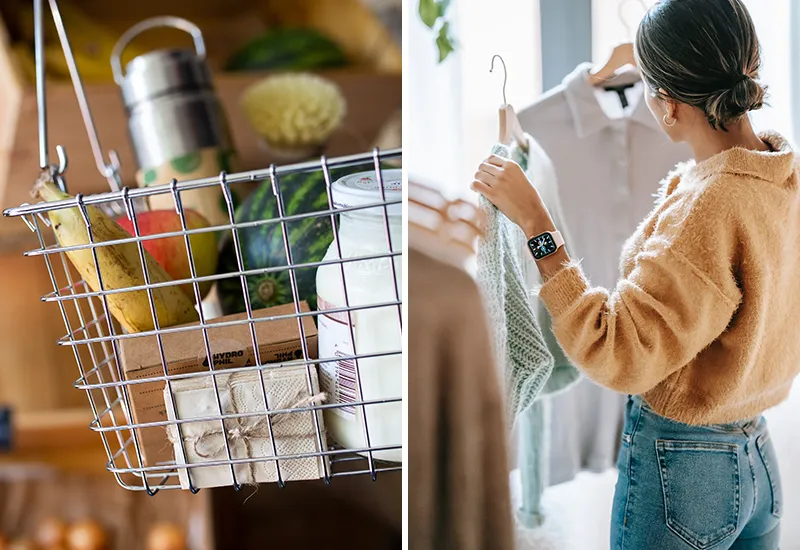
Together, we have shed light on various aspects of sustainable consumption today and prepared specific tips that each and every one of us can use. as a consumer for a more environmentally friendly and socially just world can.
From the "pyramid of sustainable consumption" to the choice of regional and seasonal products and the vegan lifestyleto supporting green companies, you now have all the options in your own hands.
And please don't think that you as an individual you cannot change anything in the world! Because on the one hand you are not alone with the aim of focusing on conscious action and responsibility for our environment and fellow human beings. And secondly in the end, every little action really does make the world a little bit better.
"Rich is he who has much, richer is he who needs little, richest is he who gives much."
Gerhard Tersteegen (more at Consumption quotes)
Do you have any questions, suggestions or other tips for sustainable consumption? Then I look forward to your comment!
Stay sustainable,

PS: I've put together a series of the best books about sustainability that you should definitely read. If you like, I'll be happy to introduce them to you next in the linked blog post. Have fun!
References
- Federal Statistical Office: Income, consumption and living conditions - Consumer spending and cost of living (as at 02.01.2024), available at https://www.destatis.de/DE/Themen/Gesellschaft-Umwelt/Einkommen-Konsum-Lebensbedingungen/Konsumausgaben-Lebenshaltungskosten/_inhalt.html. [15.01.2024]. ↩︎
- WWF Germany: WWF study - Das große Wegschmeißen (as at: 13.09.2017), available at https://www.wwf.de/themen-projekte/landwirtschaft/ernaehrung-konsum/lebensmittelverschwendung/das-grosse-wegschmeissen. [15.01.2024]. ↩︎

